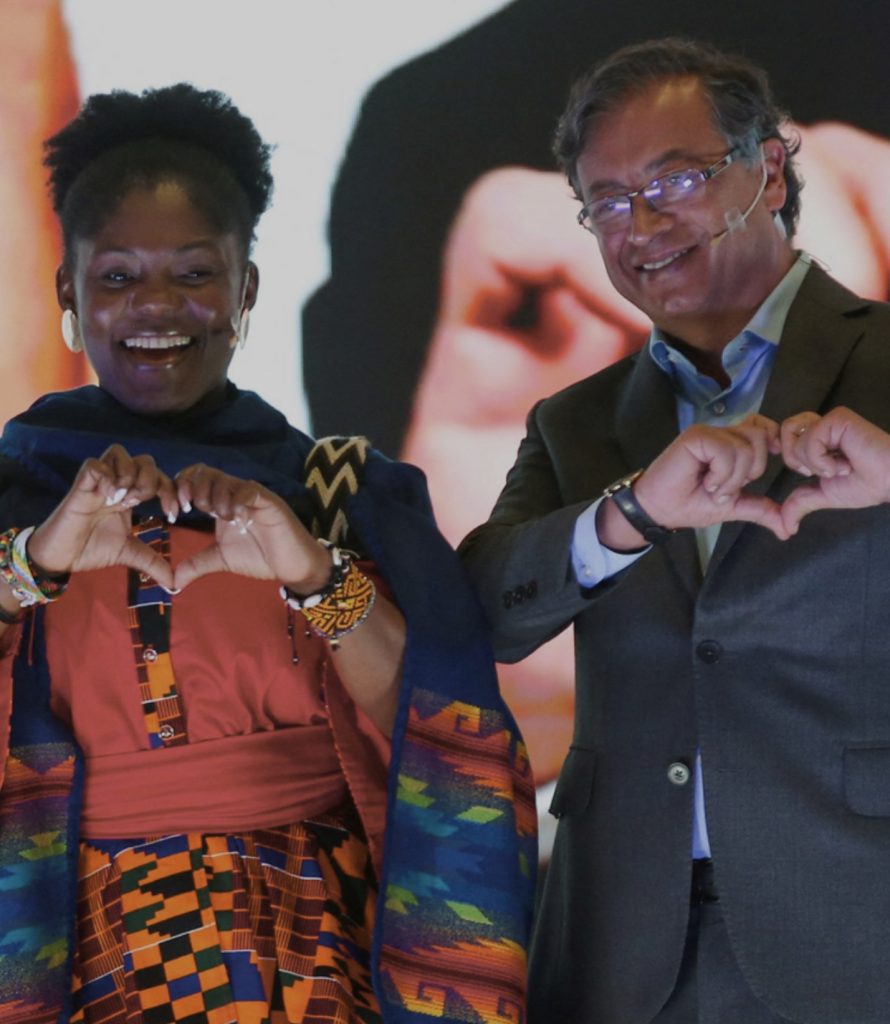In their news article in Al Jazeera, Kiran Stallone and Julia Zulver look at the dynamics of the Petro and Marquez campaign that ran on a platform that promised to prioritise women and the dangers they face in areas of conflict.

Kiran Stallone and Julia Zulver
Colombian women’s rights activist Carmen Garcia has high hopes for her newly elected president, Gustavo Petro. “I have no words to explain how excited I am. For the first time, our country has made a change. For the first time, women are going to be heard. For the first time, we women who are victims of the armed conflict are going to stop suffering in this [war],” she told Al Jazeera.
Petro, a former M-19 rebel and the first left-wing candidate to win the presidency, made several promises to female voters during his campaign: to recognise unpaid domestic labour, protect them from violence, and enact rural and land reforms to give women better access to ownership. His running mate, Francia Marquez, a former activist and single mother will become the country’s first Afro-Colombian vice president when the two take office in August.
Garcia lives in Catatumbo, a northern region along Colombia’s border with Venezuela, where she and other women in conflict areas have faced gender-based threats and activists have faced harm and even death. Although the Government of Colombia signed a peace accord with the Revolutionary Armed Forces of Colombia (FARC) in 2016, the country has seen an uptick in violence as other armed groups fill power vacuums left by the FARC rebels. “In [Catatumbo], we as women are being victimised every day,” Garcia told Al Jazeera. Femicides, sexual violence, and threats against women by armed groupshave increased since 2021, forcing many women to flee to other parts of the country, she said. “Inaction by the Colombian state has put women in vulnerable positions,” she said. Armed groups have also engaged in human trafficking, primarily targeting refugee women and girls from Venezuela, she said, echoing reports by the United Nations and other rights groups.
To address these issues, Petro and Marquez have promised to uphold the country’s peace accord with the FARC and to talk with another rebel group, the National Liberation Army (ELN). Their unprecedented campaign agenda also focuses on challenges women face as a result of the armed conflict. “This is the first presidential campaign that has a platform – known as a feminist platform – that tries to put women’s issues at its core,” said Gimena Sanchez, Colombia Director at the Washington Office on Latin America (WOLA). Petro has also said his government will work to reopen dialogue with Venezuela, “which is absolutely needed for women all along the border between Colombia and Venezuela where multiple illegal groups are operating rampantly”, Sanchez said.
Find the remaining sections of the article here.

